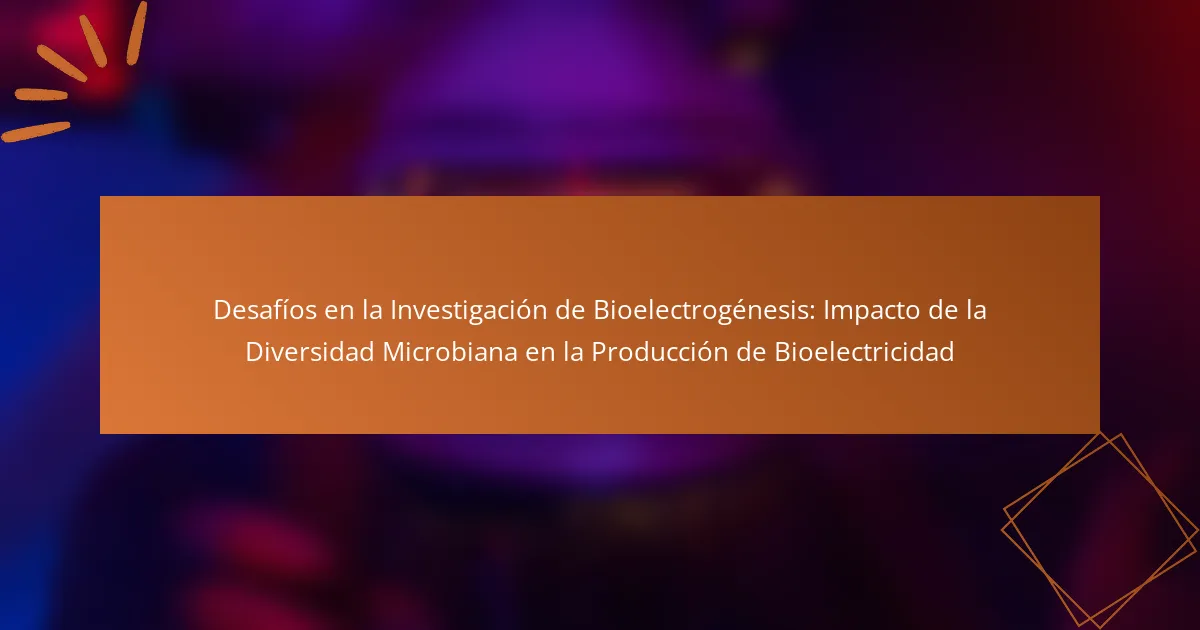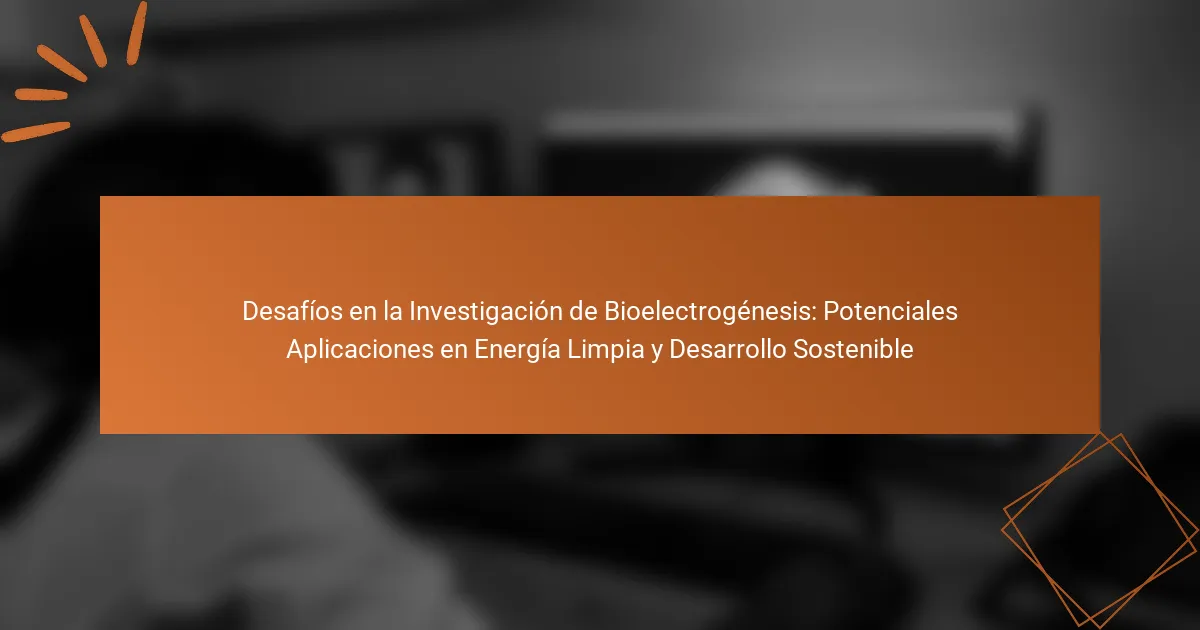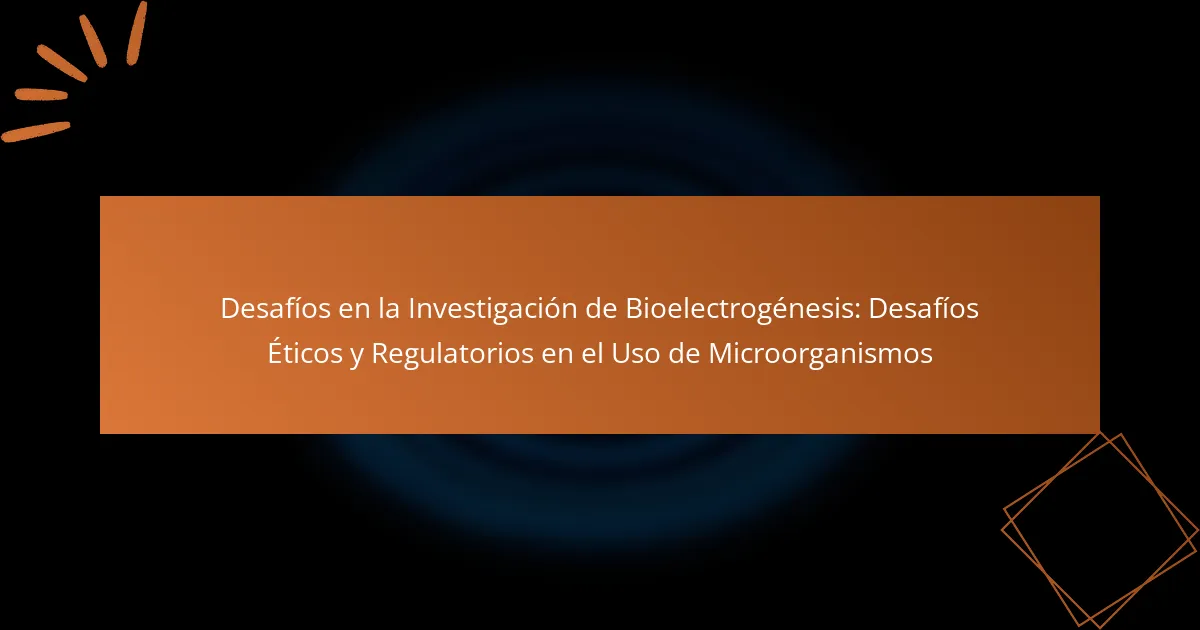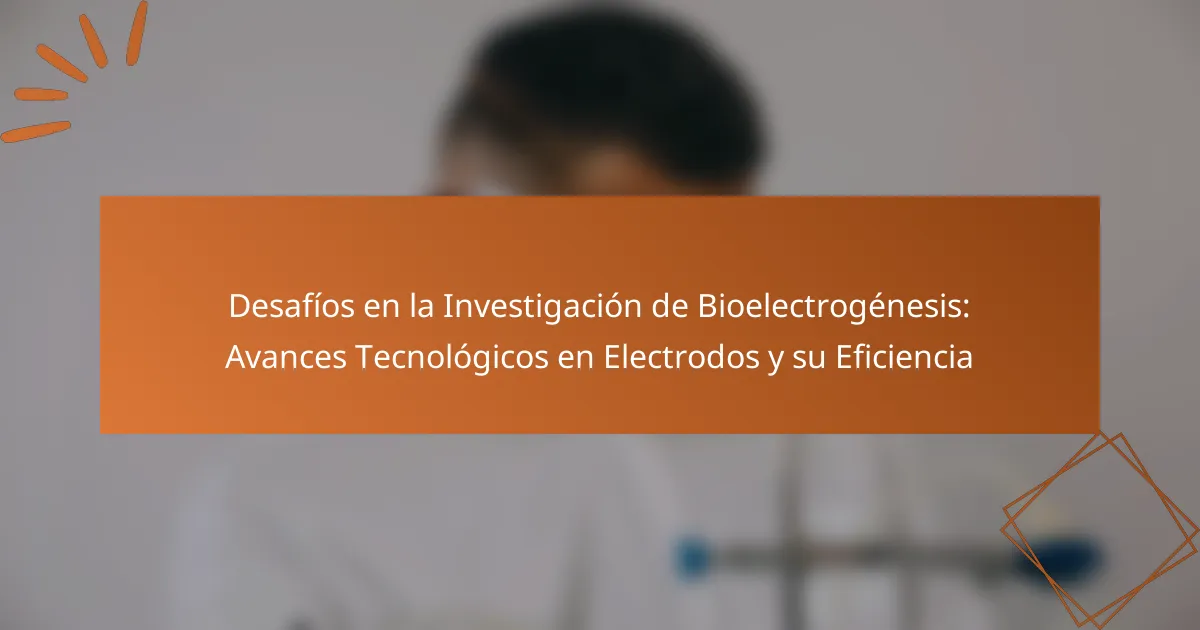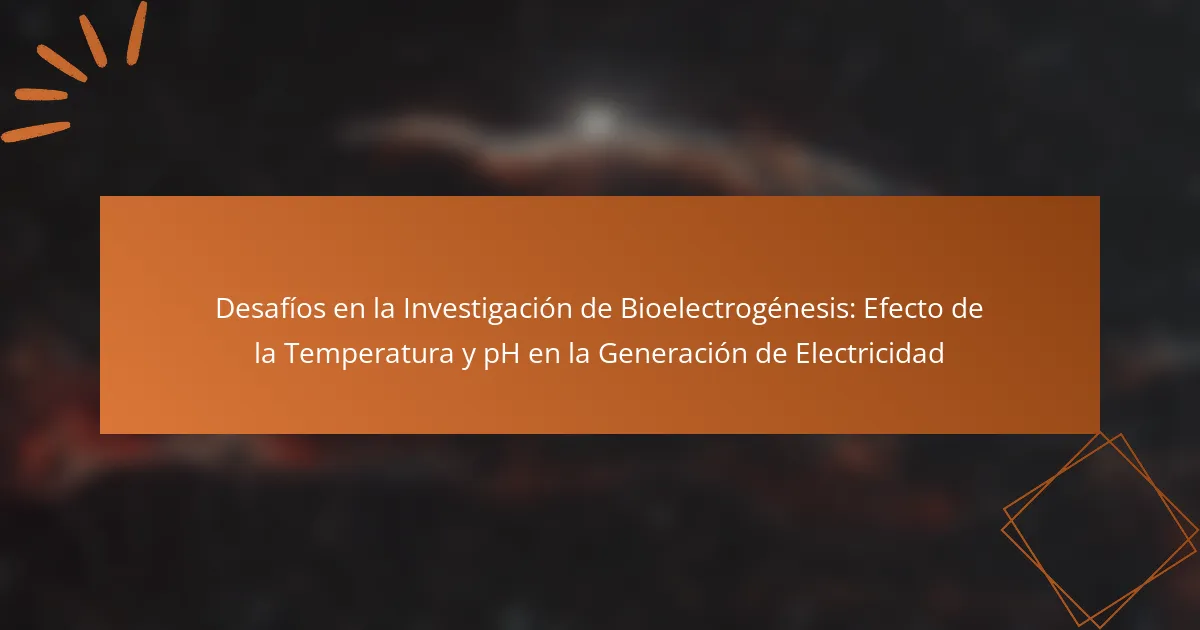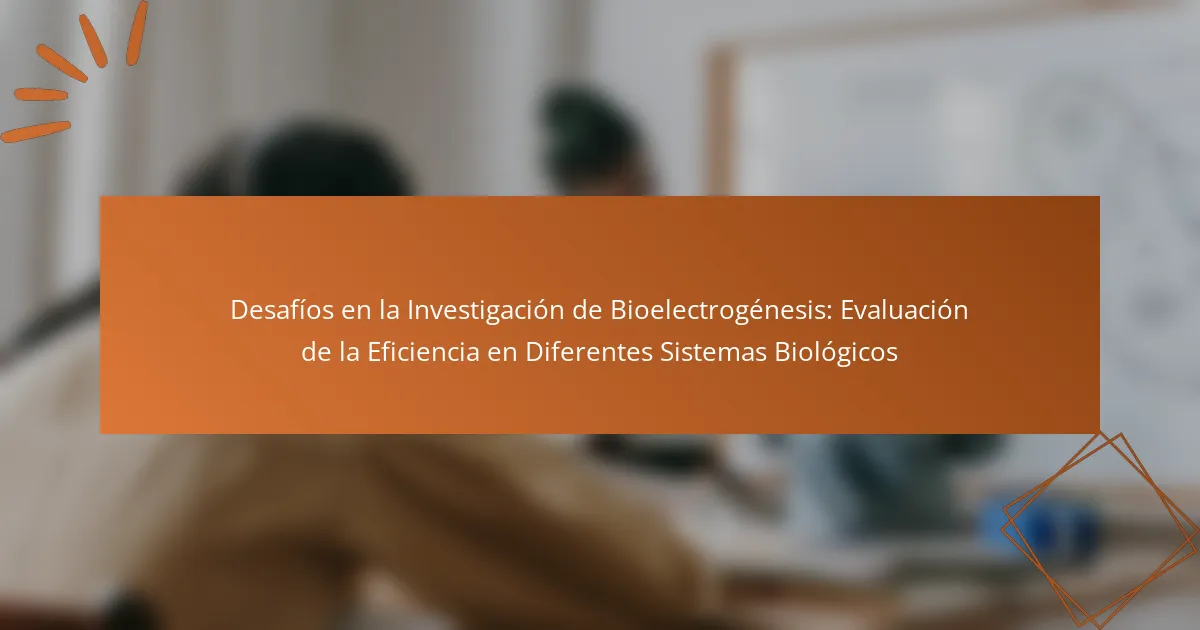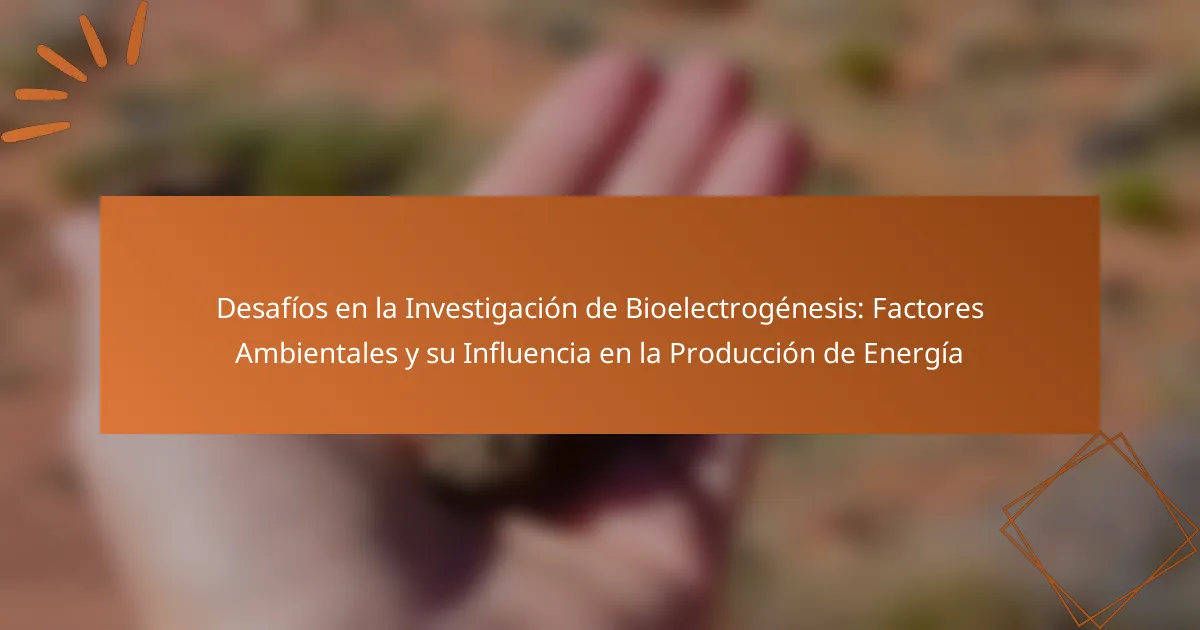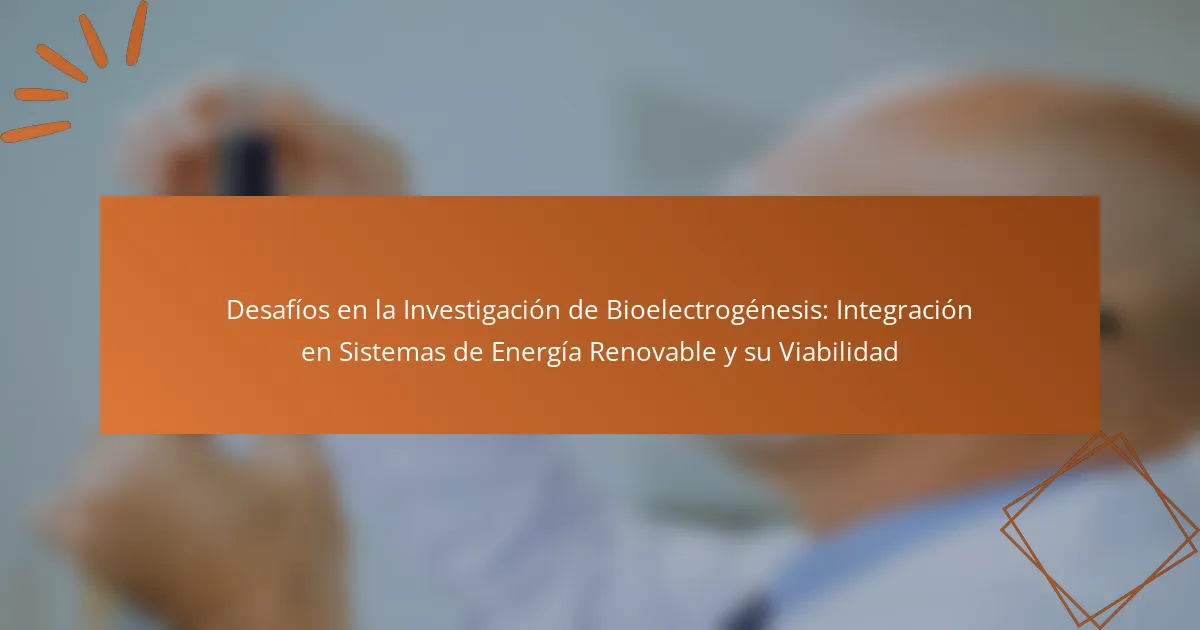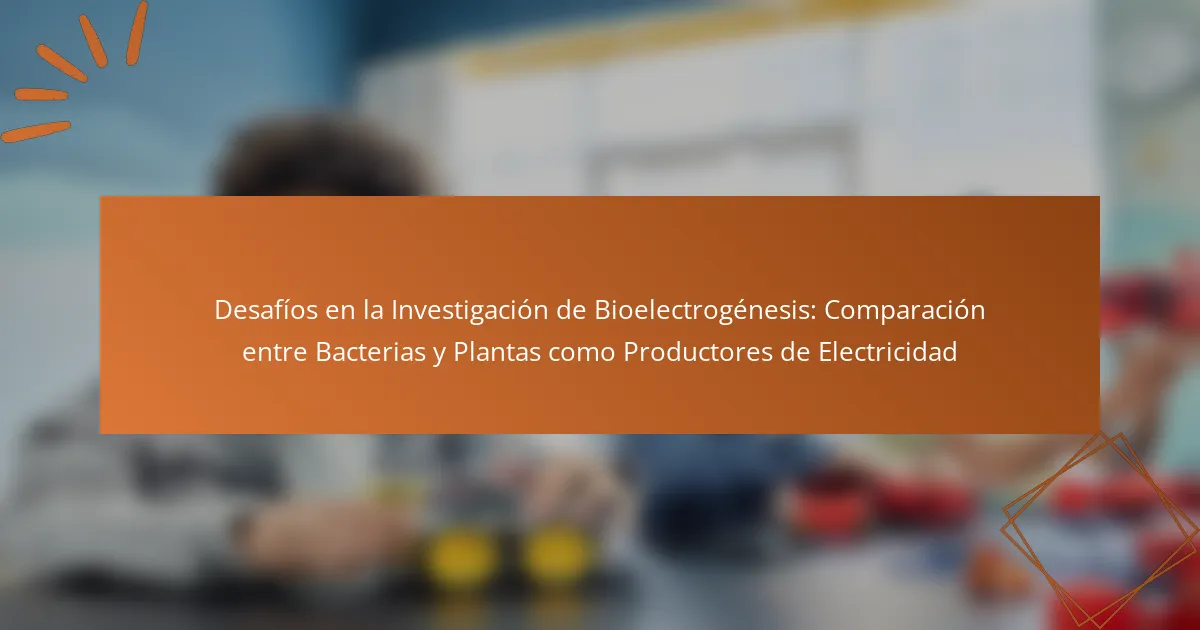
Desafíos en la Investigación de Bioelectrogénesis: Comparación entre Bacterias y Plantas como Productores de Electricidad
Bioelectrogénesis technology is a process that converts chemical energy into electrical energy using microorganisms, particularly bacteria that decompose organic matter and generate electrons. These electrons are transferred to an electrode, creating an electric current. This technology is primarily applied in wastewater treatment systems and biocombustible production, contributing to sustainable energy generation and reducing reliance on…
